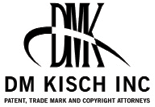Companies and individuals seeking to protect their intellectual property (IP) are often times faced with a decision between patenting their invention and keeping it a trade secret.
While not always a simple decision to make, consideration should be given to certain factors when assessing a potential route of protection.

DM Kisch律师事务所
约翰内斯堡办公室
专利律师
Patent Associate
DM Kisch
Johannesburg
According to section 45 of the Republic of South Africa’s Patents Act, the effect of a patent is to grant to the patentee in the republic, for the duration of the patent, the right to exclude other persons from making, using, exercising, disposing of or offering to dispose of, or importing the invention, so that the patentee will have and enjoy the whole profit and advantage accruing from the invention.
Patent period
In South Africa, as in a majority of other jurisdictions, a patent is granted for a period of 20 years, from the date of filing the patent application.
The first factor to take into account, therefore, lies in the above, namely that a granted patent is enforceable against any third party in the country. On the contrary, keeping a trade secret is done on a contractual basis.
It relies on the conclusion of confidential, restraint of trade and/or non-disclosure agreements (NDAs) between parties in order to ensure that the trade secret is not disclosed to the public.
Should a trade secret be discovered via legitimate avenues – for example through reverse engineering or independent research and development activities – the trade secret would become known and would be unenforceable against such parties using the subject matter of a trade secret.
Undisclosed information
Article 39 of the Agreement on Trade Related Aspects of Intellectual Property Rights (TRIPS), to which South Africa is a signatory, deals with the protection of undisclosed information.
This article sets out three general requirements that undisclosed information should meet in order potentially to prevent the information from being disclosed, acquired or used by others contrary to honest commercial practices.
The general requirements for the protection of trade secrets are that the information:
(1) is secret in the sense that it is not generally known among or readily accessible to persons within the circles that normally deal with the kind of information in question;
(2) has commercial value because it is secret; and
(3) has been subject to reasonable steps under the circumstances, by the person lawfully in control of the information, to keep it secret.
Unlike the above, the legal requirements of novelty and inventiveness that an invention has to meet in order to be patentable are stricter than the general requirement set out in TRIPS, in respect of trade secrets.
Preferred choice
Keeping a trade secret would be the preferred choice in a situation where an invention falls short of the patentability requirements of novelty and inventiveness, whilst still meeting the general requirements to be protected as a trade secret.
Certain types of inventions are also precluded from patentability in terms of the Patents Act such as, for example, business methods. However, should there be commercial value, such an unpatentable invention could also be protected contractually by means of a trade secret.
Patents are granted for a period of 20 years from the filing date of the patent application, granting the patentee a monopoly for an invention for the duration of the patent. After that period, the invention will fall into the public domain, as a patent is a published document.
Although a 20-year expiry term would not be applicable in respect of trade secrets, a person or company faces a substantial risk in keeping a trade secret.
Once the confidential information becomes known, its potentially perpetual duration will be brought to an end and the trade secret status will be destroyed.
Claiming damages
The possibility of claiming damages from a person disclosing the confidential information contrary to honest commercial practices, for example by means of a breach of an NDA, does exist, but may be a time consuming and cumbersome process.
Financial considerations may also play a role in deciding between patenting and keeping a trade secret.
While it initially may appear financially more taxing to pursue patent protection versus keeping a trade secret, the cost and effort of keeping information confidential by means of NDAs, contracts of employment, enforcement of restraint of trade agreements and interdicts, may sway the balance in favour of patents.
That is, should the invention in question, in fact, be patentable.
Use of inventions
Once an invention is used in South Africa, secretly and on a commercial scale, the Patents Act regards such an invention as no longer patentable. Once so used, albeit in secret, the possibility of later obtaining a patent for the invention would be destroyed as the novelty requirement would no longer be met.
In light of this, one can appreciate that patents offer a stronger form of IP protection, for a fixed period of time, which is enforceable against any third party in the republic.
A trade secret on the other hand, is a weaker form of protection only enforceable between parties, but which potentially could be of perpetual duration.
The decision between patents and trade secrets would be a business decision, based on various legal, financial and other considerations. Professional legal advice should be sought when assessing the various factors mentioned above.
5 Inanda Greens Business Park
54 Wierda Road West
Wierda Valley
Sandton, Johannesburg, South Africa
电话 Tel:+27 11 324 3000
传真 Fax:+27 86 603 6118
电子邮件 E-mail:
mitzic@dmkisch.com
www.dmkisch.com






















